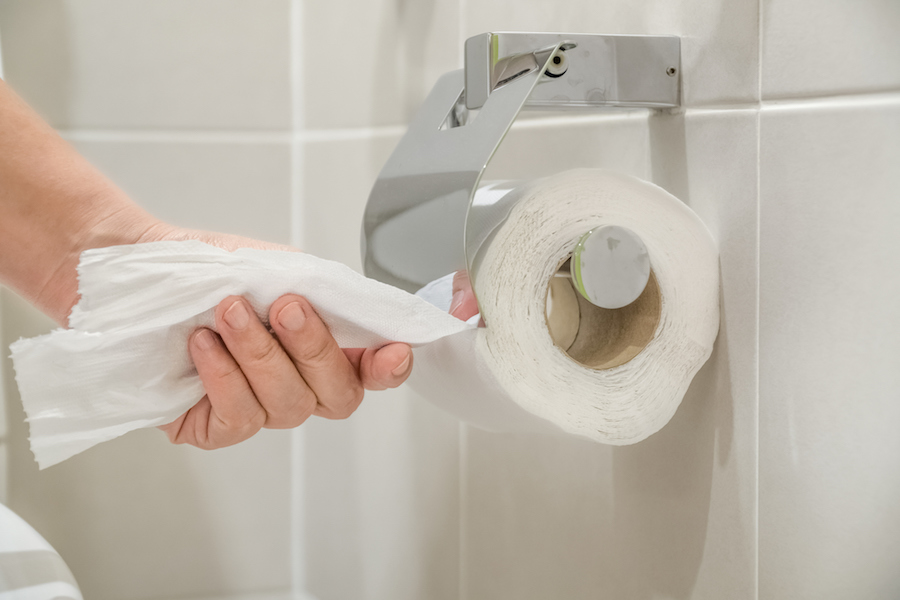Vital signs to check for bladder and kidney cancer
When was the last time you went for a wee and looked into the toilet pan before you flushed?
The majority of us don’t pay any attention to the comings and goings of our bladder, but as it turns out, you may be sending very important health information down the toilet.
Blood in pee is a key symptom of bladder and kidney cancer, yet only 16% of those most at risk – aged 50 or over – check the colour of their pee every time they go to the toilet. According to experts, blood might not appear every time, so it’s important that people seek medical help even if they notice it just once.
Worryingly though, around half (47%) of those polled in new research by Public Health England said they wouldn’t see their GP if they saw blood in their pee just once, with 45% saying they would wait and see if it happened again – potentially delaying a vital diagnosis.
The new findings are part of a new ‘Be Clear on Cancer’ campaign by PHE that’s encouraging people to be aware of the vital cancer signs. Every year around 22,000 new cases of bladder and kidney cancer are diagnosed in England; causing around 10,000 deaths.
Should I be worried about finding blood?
Yes and no. Seeing blood in your urine does not always mean you have bladder cancer. More often it is caused by other things like an infection, benign tumors, stones in the kidney or bladder, or other benign kidney diseases.
However, it’s important to have it checked by a doctor in the first instance, so the cause can be found, as 80% of bladder cancer patients have reported finding blood in their urine according to Cancer Research UK.
Still think #BladderCancer just affects “old men?” I’m 47 and terminal, certainly NOT the youngest to have it… blood in yr pee? Pain when peeing? Peeing more? Lower back pain? GO SEE YOUR DOCTOR! It’s important
— My big fat British Bladder Tumour (@big_british) July 16, 2018
What are the other signs of bladder and kidney cancer?
Usually, the early stages of bladder cancer cause bleeding but little or no pain or other symptoms – which is why it’s important to see your GP if this sign appears.
Bladder cancers that have grown large enough, or have spread to other parts of the body, can sometimes cause other symptoms, such as being unable to urinate, lower back pain on one side, loss of appetite and weight loss, feeling tired or weak, swelling in the feet and bone pain.
According to Cancer Research UK, blood in the urine, which is also called ‘haematuria’, is the most common symptom of kidney cancer. About 50% of people diagnosed with kidney cancer have it when they first go to the doctor. The blood can make the urine turn a bright red colour, although on rare occasions, it can turn a dark brown.
It can come and go and sometimes, it cannot be seen by the naked eye – but it can be picked up by a simple urine test at your GP surgery.
As the cancer progresses, you may feel a lump or swelling in the area of your kidneys. If this occurs, you should go straight to your doctor.
Some people have other symptoms which can be vague, such as weight loss, a high temperature, a pain in your back on one side that won’t go away, tiredness, loss of appetite and a general feeling of poor health.
However, it’s important not to panic, as these symptoms can be caused by many other conditions. Most people who have them will not have cancer, but it’s worth getting them checked out. If it is cancer, it will be easier to treat if it’s caught early.
If you’re worried at all, always speak to your GP.
The Press Association
Latest posts by The Press Association (see all)
- 5 new books to read this week - November 23, 2024
- 3 easy Mary Berry recipes to make this season - November 22, 2024
- In Pictures: Party stalwart kept New Labour in touch with traditional supporters - November 21, 2024
- 6 easy indoor exercises to try this winter – and why they are good for you - November 19, 2024
- Martin Clunes: I can’t afford to retire – I’ve got too many horses - November 19, 2024





















